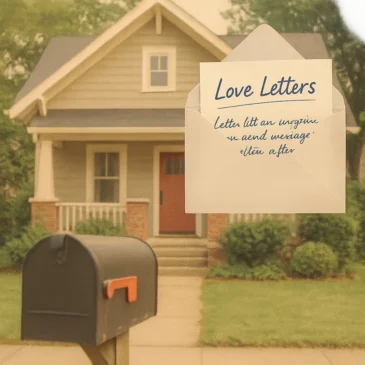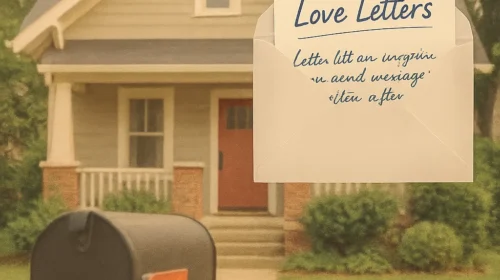When Emily Winters walked out of the real estate office, house deed in hand, she felt more relief than guilt. She had just sold the only home her stepmother, Diane, had ever known. Diane had been placed in a long-term care facility six months earlier after suffering a massive stroke. Doctors said she wouldn’t recover enough to live independently again.
Emily told herself she had done the practical thing.
“I can’t afford to keep paying the property taxes,” she said aloud to no one, almost hoping the wind would whisper back its approval. “It’s just a house.”
But it wasn’t just a house. It was the last piece of a relationship that had started in pain but grown into something real.
A Complicated Beginning
Emily was 15 when Diane married her father, Tom. Her mother had passed from cancer two years prior, and Emily was still seething at the universe. Diane was kind but cautious, never trying to replace her mother but always offering a gentle hand.
“She’s not my mom,” Emily would whisper to her best friend Rachel in school. “She’s just the woman my dad married.”
But over time, Diane’s presence became a quiet anchor. She showed up to Emily’s school plays, packed her favorite lunches, and once drove through a snowstorm just to drop off forgotten homework.
By the time Emily was 22, Diane had become family. And when Tom died of a sudden heart attack, Diane stayed—not because of obligation, but because she loved Emily.
The Stroke That Changed Everything
Diane had aged gracefully, but her health declined rapidly after her 70th birthday. The stroke hit without warning. Emily rushed to the hospital, her hands trembling as she signed the care facility forms.
Doctors said Diane would need 24-hour care for the foreseeable future. The house, untouched since Tom passed, sat quiet and dark on a cul-de-sac in Denver.
“I thought she’d want me to let it go,” Emily would later explain. “She always said not to be sentimental about ‘things’.”
But part of her knew she hadn’t asked. Diane couldn’t speak anymore. And now, maybe, she never would.
Selling the Home
The house sold quickly—a young couple from Oregon bought it. They were eager, excited, and paid cash. Emily used some of the money to upgrade Diane’s care and placed the rest in a savings account.
“It’s what she would have wanted,” she repeated in her head like a chant.
Then, one rainy Tuesday morning, someone knocked on her apartment door.
The Knock That Changed Everything
A man in his late 30s stood on her doorstep. He looked nervous but kind, holding a small envelope in his hands. His name was Peter Langley—the man who had purchased Diane’s home.
“Sorry to bother you,” he said, shifting his weight from one foot to the other. “I found something hidden in the attic crawlspace. It had your name on it.”
Emily stared blankly as he handed her the envelope. It was dusty and old, sealed with pink wax. Her name—written in Diane’s tidy cursive—adorned the front.
Inside was a letter.
Dear Emily,
If you’re reading this, I’m probably no longer able to say the things I’ve wanted to say for years. Loving you wasn’t always easy—for you or for me—but it was one of the best things I ever chose to do.
This house has always been more than wood and bricks. It’s where we built memories. Where your dad laughed, where we cried, where you became mine—even if you never said it out loud.
If you ever decide to let it go, that’s okay. But know this: my love for you wasn’t in the walls. It was always in the quiet moments—the peanut butter sandwiches, the late-night talks, the proud tears I shed at your graduation.
You were the daughter I got to choose. And I would choose you all over again.
—Diane
Emily’s breath caught in her throat. Her hands trembled as she folded the letter. The hallway around her blurred with tears.
Peter looked uncomfortable, unsure if he should leave. But Emily looked up and smiled—a small, raw, honest smile.
“Thank you,” she whispered. “You have no idea what this means.”

Final Thought
Emily never asked Diane if it was okay to sell the house. She had carried that regret quietly, even as she tried to justify it. But the letter reminded her of something deeper: love doesn’t live in homes. It lives in hearts. It lives in gestures, in presence, and in letters left behind when words are no longer possible.
She visited Diane that evening, holding her hand just a little longer, reading the letter aloud even though Diane’s eyes didn’t open.
Sometimes, forgiveness comes when we least expect it—delivered by a knock at the door and sealed in a dusty envelope.



